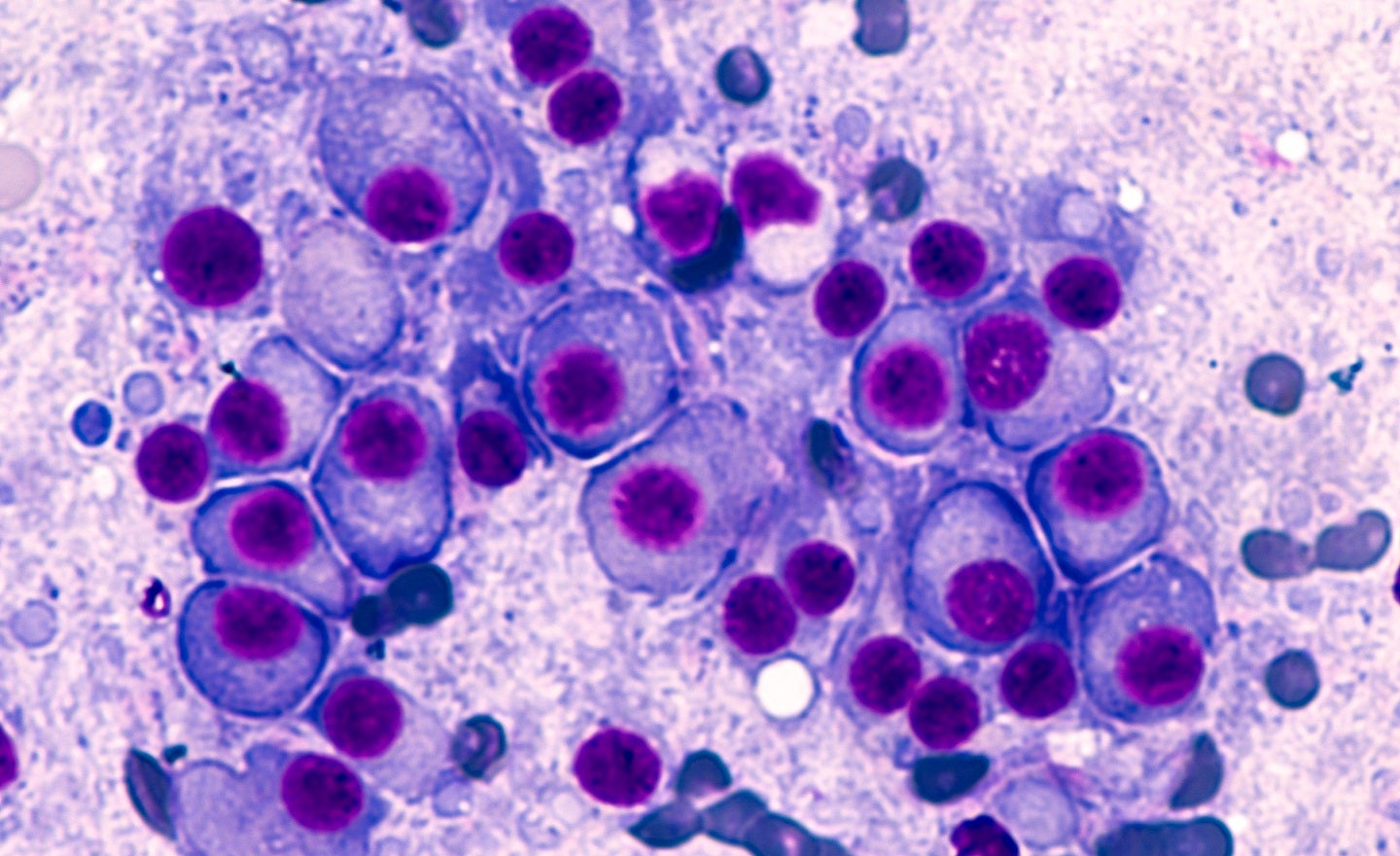
The US Food and Drug Administration (FDA) has granted fast track designation for CellCentric’s inobrodib (CCS1477) to treat relapsed or refractory multiple myeloma patients.
Inobrodib is an oral first-in-class cancer drug, indicated for patients who have previously received four or more lines of therapy, including an anti-CD38 monoclonal antibody, an immunomodulatory agent and a proteasome inhibitor.

Discover B2B Marketing That Performs
Combine business intelligence and editorial excellence to reach engaged professionals across 36 leading media platforms.
It inhibits p300 and CBP by binding into the conserved bromodomain of the twin proteins.
This impacts the expression of important cancer drivers, including interferon regulatory factor 4, the MYC gene, and the androgen receptor and its variants.
The therapy can be utilised by patients who have failed to progress on other therapies and along with existing standard-of-care drugs.
CellCentric chief operating officer Debbie Haynes stated: “This fast track designation underlines the potential of inobrodib to positively impact the lives of many people living with cancer who could benefit from the ability to take the treatment at home.

US Tariffs are shifting - will you react or anticipate?
Don’t let policy changes catch you off guard. Stay proactive with real-time data and expert analysis.
By GlobalData“This decision allows us to move faster to develop a new therapeutic option that has shown to be effective even when cancer cells have become resistant to other drugs.”
The company is evaluating inobrodib both as a monotherapy and along with common standard-of-care treatments, including dexamethasone and pomalidomide in several myelomas, in an ongoing Phase I/IIa blood cancer trial.
The trial has been designed to evaluate the tolerability, biological activity, safety and pharmacokinetics of CCS1477 in patients with multiple myeloma, non-Hodgkin lymphoma, acute myeloid leukaemia or high-risk myelodysplastic syndrome (MDS).


